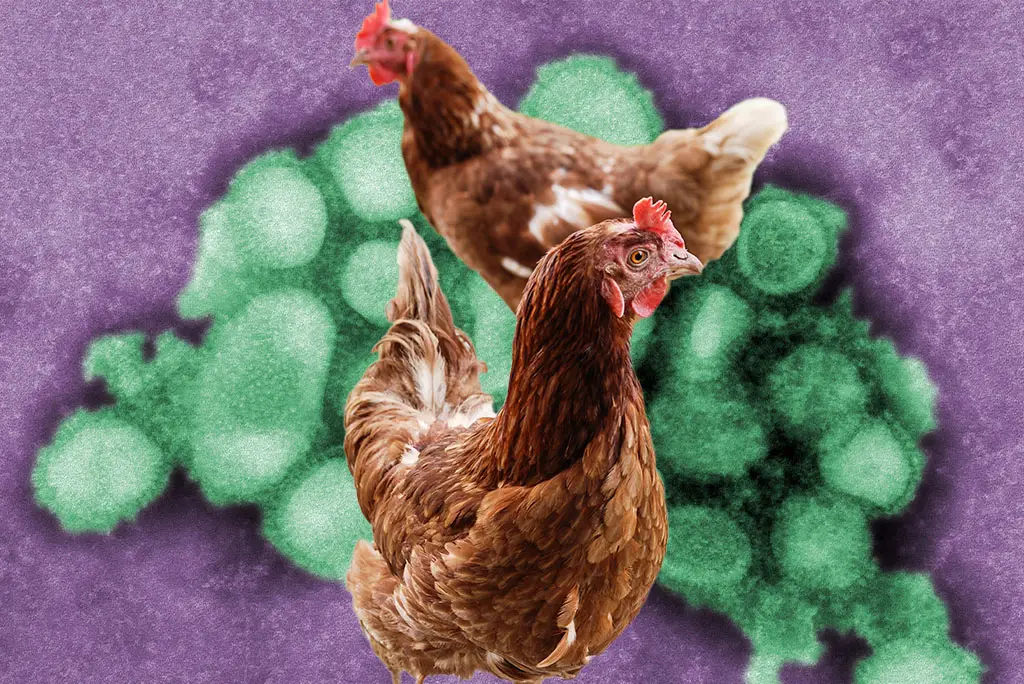Reuters report that the bird flu has a new strain. It transmits among wild birds and it has triggered a new spread worldwide. The flu is infecting and taking the lives of a variety of mammals. It is raising fears of a pandemic more critical than COVID.
How the new bird flu may have occurred
The new strain of bird flu is called H5N1 clade 2.3.4.4b. It emerged in the year 2020. It spread to parts of Asia, Africa, Europe, and North and South America. This is causing several numbers of deaths among wild birds and also death in domestic poultry. The virus also infected mammals like grizzly bears, foxes, seals, sea lions, etc.
Canadian Food Inspection Agency (CFIA) said in an email to Global News, that millions of birds are affected worldwide. This includes above 7.2 million in Canada. Also, the bird flu infection spread in the United States and many other countries throughout the world.
Whether people are at a risk due to the new bird flu
The subtype of H5N1 is not causing any disease in people. And, only a half-dozen cases were reported to the WHO or World Health Organization. This is in people who had a close connection with infected birds. Most of the infections were mild.
The way this new bird flu virus infects cells is 1 reason for the mutation concern, as told by the flu experts to Reuters. They say that this virus thrives well in wild birds and thus is likely to make it less infectious to people.
Health Canada and Canadian Food Inspection Agency (CFIA) said that the present worldwide avian influenza outbreak was “unprecedented”. But, the risk of getting infected by the virus is still low.
Avian influenza is also known as bird flu. Normally, it spreads among a variety of bird species. However, the virus may spread from bird to human. This was the case in Cambodia.
Globalnews.ca reported that the rising number of cases raised concerns that whether the virus can spread easily between people, which might potentially trigger a health emergency. But, Health Canada said via an email to Global News on Thursday that human infection from avian influenza A(H5N1) is a rare case. It only poses a low risk for the common public who have only limited contact with infected birds and animals.
How to prevent the new bird flu from spreading to humans
So, eating well-cooked poultry meat and eggs is better suggested. Canadian Food Inspection Agency (CFIA) suggests Canadians cook poultry thoroughly to an internal temperature of about 71 C (160 F).
The virus spread when a person is in direct contact with live diseased poultry. As a result, the agency also recommends avoiding direct contact with feces, blood, and respiratory secretions of wild birds.
The CFIA said that it is monitoring the situation. The agency has also activated a response team of experts. The team includes veterinarians, and administrative and field staff, in order to coordinate action with provincial, federal, and municipal officials and industries to help prevent the bird flu spread.
It does this by thorough disinfection, depopulation, cleaning, and disease surveillance at the infected premises, and also by placing movement controls, like quarantining infected areas in order to prevent the disease from spreading.
The CFIA has also imposed strict requirements on the import of different animals and different animal products from several countries where avian influenza now exists.
The CFIA said that presently, the avian flu has a total of 299 outbreaks that are confirmed in both non-commercial and commercial flocks. This is with about 7.2 million birds that are affected in Canada. The egg and poultry industry counts about 5,000 commercial producers in Canada. In the year 2022, Canadian egg and poultry producers raised about 790 million birds and also produced more than 803 million eggs for public consumption.
